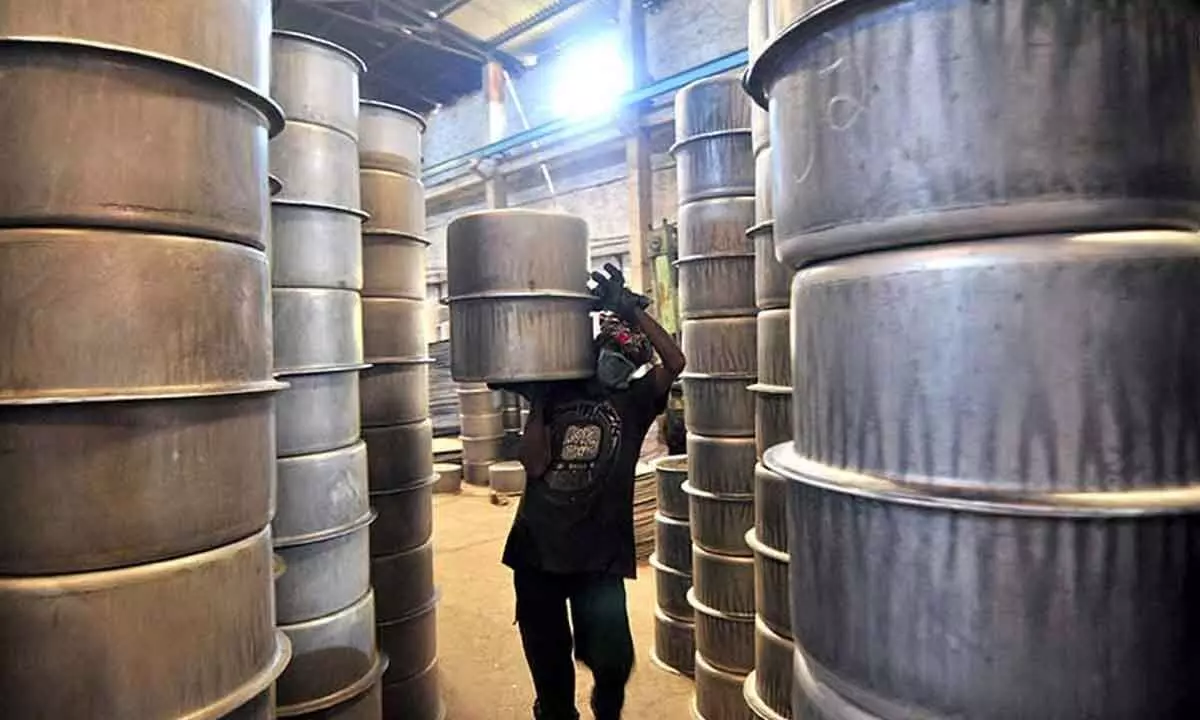Why formalisation holds the key to India's MSME boom
While Indian MSMEs represent a formidable economic force, their true potential remains shackled by informality
image for illustrative purpose

Embracing formal registration is imperative for MSMEs in India to unlock their full growth potential, enhance competitiveness, and contribute effectively to economic development. By leveraging government initiatives and embracing formalization, MSMEs can transcend the challenges posed by informality, emerging as engines of inclusive and sustainable growth
In India, MSMEs contribute approximately 30 per cent to the GDP and serve as significant employers, particularly in rural and semi-urban regions, fostering inclusive growth and livelihood opportunities. With over 63 million MSMEs, 99 per cent of which operating in an informal system, the country boasts one of the largest ecosystems globally, showcasing their pervasive influence across sectors and regions, and yet begging for better transparency and efficiency.
Working in an informal milieu is limiting their access to several benefits and constraining their potential for expansion. This article underscores the urgency for a universal MSME registration, emphasising its pivotal role in mainstreaming millions of small and micro enterprises, nurturing a conducive business environment, fostering their own and country’s economic development.
Reluctance to Register
While a lot of effort is being made by the government to bring the largely informal economy of MSMEs into the mainstream formal economy, mainly through a simple online registration process Udhyog Aadhaaar memorandum (UAM), and these efforts have borne fruit too, a lot remains to be accomplished.
Presently, of the 6.3 crore MSMEs in India, only half are registered, denying many opportunities for GST and non-GST registered small businesses to avail of government schemes, production related incentives and formal channels of credit.
While the government and most economists and policy makers find overwhelming merit in MSMEs joining the formal economy, there is a substantial resistance particularly from the small and micro businesses and industries. This resistance needs to be given up now to unshackle the true potential of this sector. The onus, therefore, lies on MSMEs to change this status quo.
Digital Commerce Ecosystem
The expansion of MSMEs must ride on digital commerce ecosystem There is a pressing need to reconfigure the digital commerce ecosystem that will bring in endless benefits.
The resistance to bring them in the formal system is understandable. There may have been some benefits for operating in an informal ecosystem. Such advantages were rooted in opaque systems that flourished during a licence raj, helped many escape the regulatory obligations and encouraged corruption and malpractices. Such practices decidedly brought some short-term gains for the enterprises, but such practices have completely outlived their transient utility in a predominantly digital age.
Formal registration offers a myriad of advantages for MSMEs. Firstly, it provides access to institutional credit at concessional rates, enabling modernization and capacity expansion. Secondly, formalization ensures legal recognition and protection, enhancing credibility and facilitating secure business transactions. Thirdly, registered MSMEs qualify for various government initiatives, fostering innovation, entrepreneurship, and industrial development. Moreover, formalization facilitates entry into formal supply chains, broadening market access and enhancing competitiveness. Lastly, registration ensures adherence to regulatory standards, promoting transparency, accountability, and ethical business practices.
Understanding Compulsions
Understanding why firms choose to operate informally is a starting point. Viewing formalization from an informal enterprise’s perspective is critical. Formalization entails certain costs as well as benefits for undertaking economic activities. If the regulatory apparatus is complex and imposes extensive costs, it serves as a primary disincentive for firms to register. This is particularly true for smaller firms with narrow profit margins who find the costs of compliance financially burdensome. Similarly, stringent and complex labour laws also serve as one of the reasons to avoid perceived entrapment.
To address the challenges faced by unregistered MSMEs, the Government of India has introduced initiatives like the Udyog Aadhaar Memorandum (UAM) scheme, simplifying the registration process. Additionally, financial assistance schemes such as the Credit Guarantee Fund Trust for Micro and Small Enterprises (CGTMSE) aim to enhance credit accessibility for registered MSMEs. Strategic campaigns like Atmanirbhar Bharat Abhiyan and Make in India advocate for self-reliance and domestic manufacturing, with a focus on supporting MSMEs through policy reforms and targeted interventions.
Given the various reasons firms stay unregistered, tackling informality calls for a multi-pronged approach. It is not an overnight switch but a gradual shift by creating the right environment for firms to be attracted towards formalization. Falling out of the formal purview makes it hard for schemes and programmes to reach them. Put simply, to be able to target reforms, we must be aware of the existence of potential beneficiaries. The slew of initiatives put forth by the government must reach millions that have remained beyond the pale of state’s reach.
Sustained Effort
Reforms must not stop at the successful registration of an economic unit. We must strive to create pathways for registered units to thrive and achieve higher productivity levels. Considering that the number of unincorporated non-agricultural enterprises, assessing factors and causes of informality for each sector and geographic level is the need of the hour. There are multiple micro enterprises with untapped potential. With appropriate incentives to formalize and reforms to help them scale up, we can unleash their potential in driving economic growth and paving the way towards the goal of achieving decent work for all.
Embracing formal registration is imperative for MSMEs in India to unlock their full growth potential, enhance competitiveness, and contribute effectively to economic development. By leveraging government initiatives and embracing formalization, MSMEs can transcend the challenges posed by informality, emerging as engines of inclusive and sustainable growth.
(The author is the Former Secretary, Ministry of MSMEs, Government of India.)

